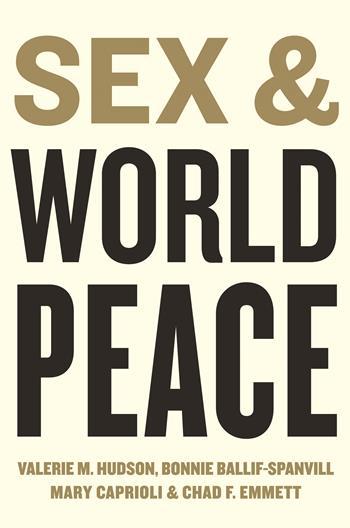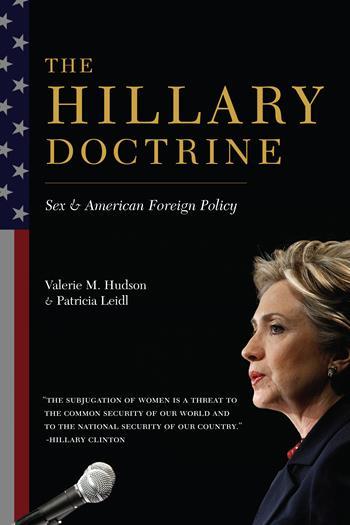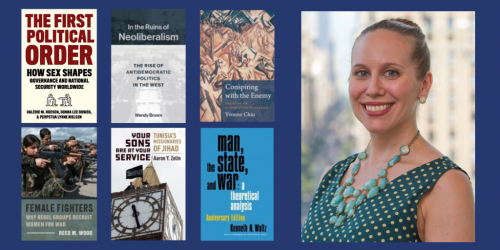Valerie M. Hudson: What Sex Means for World Peace

In a recent article in Foreign Policy, Valerie M. Hudson, coauthor of Sex and World Peace, argues that
the very best predictor of a state’s peacefulness is not its level of wealth, its level of democracy, or its ethno-religious identity; the best predictor of a state’s peacefulness is how well its women are treated. What’s more, democracies with higher levels of violence against women are as insecure and unstable as nondemocracies.
Valerie Hudson offers a litany of statistics pointing to the difficult situation that women throughout the world continue to face in regards to treatment under the law, lack of representation in government, rape, and violence. She argues that the impact of violence against women and the rise of sex-selective abortions, will have an impact on the future security of many societies.
The evidence of violence against women is clear. So what does it mean for world peace? Consider the effects of sex-selective abortion and polygyny: Both help create an underclass of young adult men with no stake in society because they will never become heads of households, the marker for manhood in their cultures. It’s unsurprising that we see a rise in violent crime, theft, and smuggling, whereby these young men seek to become contenders in the marriage market. But the prevalence of these volatile young males may also contribute to greater success in terrorist recruiting, or even state interest in wars of attrition that will attenuate the ranks of these men.
Hudson concludes her discussion with U.S. policy in Afghanistan. Despite Hillary Clinton’s emphasis on women’s issues in American foreign policy and security, U.S. long-term commitment to women’s rights in Afghanistan is unclear. U.S. officials have admitted that gender issues might have to take a back seat to other concerns after U.S. pullout in 2014. However, Hudson believes the U.S., which has insisted on greater participation by women in the Afghan government, could still have a role to play:
The United States is not impotent to assist Afghanistan’s women, even as it leaves that benighted land. It can at least attempt to ensure a softer landing for them after 2014. Before the United States leaves, it could set up an asylum policy for Afghan women facing the threat of femicide, or a scholarship program to send the best and brightest female Afghan students to American universities. It could ensure that women are well represented in the peace jirga talks with the Taliban. It could encourage the pursuit of International Criminal Court indictments against top Taliban leaders who have ordered femicides. It could complete funding for a Radio Free Women of Afghanistan station and establish mosque-based female education. The United States could insist to the Afghan government that women’s shelters not be taken over by the government. And it could continue to condition aid to Afghanistan on specific and measurable improvements for women there. Hopefully, U.S. Ambassador Ryan Crocker and others will actively investigate these possibilities.



